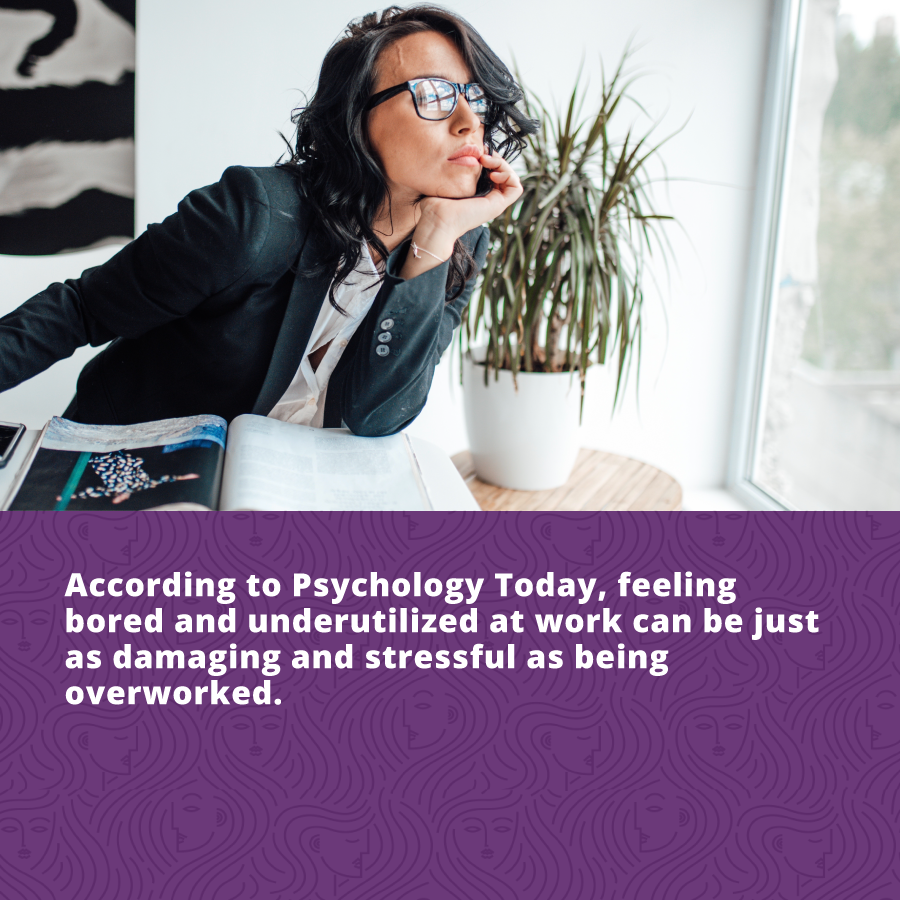She Is Resilient: How to Know It’s Time to Take a Risk with Your Career
Making a career change is a daring way for a woman to prove that she is resilient, it is no easy feat. Even dream jobs don’t always withstand the test of time; they can get dry, boring, and unmotivating. Maybe now you’re looking to ask for a promotion to a position with more responsibility at your current company, or maybe you’re trying to find a better job with another company. Maybe you’re even toying with the idea of completely changing career paths or branching out on your own endeavor. Never mess with a woman entrepreneur! No matter the situation, the decision to take a career risk is a difficult one.
There are a lot of factors that can play into your resolution to take a career risk; money, job satisfaction, and following your passion are just a few. There are also equal, if not greater factors that can keep you from making the jump to a new career. Unpredictability, location, money, moving family, switching insurance, and learning a new skill set are among the top. With that said, it might be worth the risk.
If you’re teetering on the edge of a career gamble, ask yourself the questions below. The answers could lead you in a bright, new direction in a new occupation.

Do You Lack Passion In Your Current Career?
Having passion for your work can make an enormous difference; it could be the difference between loving your job (the place where you’ll spend 40 hours or more of your week) and dreading going to work each morning. Our passions can also change over time. This means that you might outgrow your current role or company and that’s okay! Nonetheless, the leap between careers is intimidating. Passion pays off! That is to say, the passion we put into our work can actually predict our success in our field.
One study, published in the Journal of Personality and Social Psychology, examined a non-cognitive trait that they called “grit.” Grit, they defined, is the perseverance and passion for long-term goals, like those applied to careers. Study participants that showed grit demonstrated greater success beyond IQ and conscientiousness. The study suggests that if you’ve got grit, you could be more likely to achieve your big goals and sustain focus on your talents over time. If your current career doesn’t inspire grit, passion, or even big ideas, it might be time to reconsider your options and look elsewhere to put your passions to best use.
Is Your Work-Related Stress Affecting Your Life Outside The Office?
If you’re dissatisfied or overworked in your current position, it can be hard to leave work at work. There can be some pretty severe consequences of work-related stress from the physical to the psychological. A study conducted by Health Reports examined a few of those repercussions and just how common they are. Work injuries, migraines, high blood pressure, and even psychological distress are common work-related stress side effects that you can’t just leave at the office. Twelve percent of women who participated in the study reported suffering from migraines related to work stress. High blood pressure affected 5 percent of both men and women studied. According to the data collected, psychological distress is highest among workers in jobs with high demands, but little control over decision making. “Fully 40 percent of workers in such jobs scored high on psychological distress,” the study says. If you’re experiencing any signs of work-related stress outside of the office, that’s a clear indication that something about your current position is amiss and you should evaluate your options to move on.
Our bodies and minds are constantly changing and our offices don’t always keep up with us. Take, for example, a woman who started experiencing flare ups of an autoimmune disease, lupus, during her fifties. She soon found out that her office life was making her flare-ups even worse. When the office was cold, she would lose circulation in her fingers. When lupus made her confused, her work started piling up. When she started needing more doctors appointments, her employer was unwilling to give her a more flexible schedule. All of this led to her quality of life decreasing after leaving the office because she felt stressed and buried by all the work waiting for her. Despite this, she proved that she is resilient by finding a better employer (in another industry) who was willing to meet her halfway and make sure her work-life balance was comfortable and able to sustain her through any condition.

Do You Feel Like Your Talents Are Underutilized?
According to Psychology Today, feeling bored and underutilized at work can be just as damaging and stressful as being overworked. In the article, Curt W. Coffman, global practice leader at the Gallup Organization, says that 55 percent of all employees in the United States are not engaged in their work. “They’re basically in a holding pattern,” he says. “They feel like their capabilities aren’t being tapped into and utilized and therefore, they really don’t have a psychological connection to the organization.”
This feeling of being overlooked or underutilized can lead to a disconnection from your job. Without a strong connection, that passion that can power you to achieve your goals is missing and so is job satisfaction. If you can, talk to your employer about what more you have to offer. If after such a conversation you’re still feeling bored, it may be time to look for your next big thing or pick up an exciting and fulfilling side-gig.
So where do we go from here?
If the answers to your questions are pushing you towards a new career, embrace them. The average age of the career hopper is 39, proving that it is never too late. You don’t have to dive in headfirst – you can start job hunting, researching new career fields and positions, or you can start by identifying the benefits you want your employer to have. Try taking an online course in your prospective career field to see if you really like it! Don’t be afraid to pick peoples’ brains about what it’s like to work in their industry and how they got to the position they are in. If you’re looking for career advice, there are plenty of women career coaches online to help you kick it in gear. A woman proves that she is resilient every day. You are not pigeon-holed into your career and it is never too late to develop a new skill set and shatter some glass ceilings while you’re at it.

